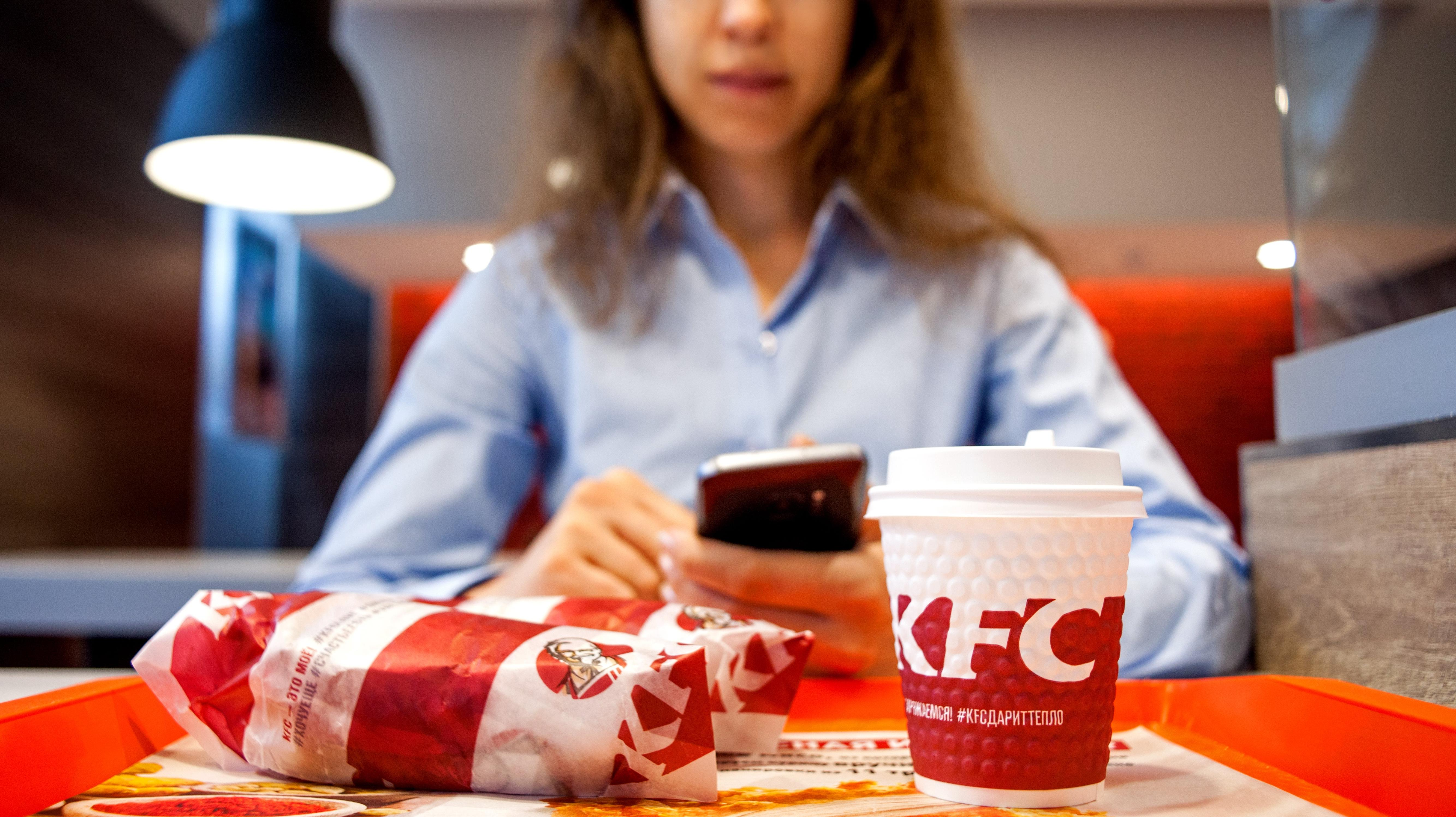KFC Knows How Profitable It Is To Text You
Even your DMs are not safe from fast food promotions.
Promotional emails can easily be routed to the spam folder, where they're quietly deleted after 30 days. But your text messages are a different story, and it seems that many fast food chains have caught onto this, treating it like a marketing opportunity.
Fast food brands are texting customers
The latest chain to experiment with texting its customers is KFC, reports industry publication Nation's Restaurant News. KBP Brands, a franchisee of Yum Brands (the latter of which owns KFC, Pizza Hut, Taco Bell, and other fast food restaurants), is testing an SMS and mobile wallet program at over 100 KFC locations in Texas, New Jersey, Oklahoma, Arkansas, New York.
Customers who sign up to receive texts from KFC will be sent messages about limited-time promotions, opportunities to try new menu items being tested in that area, and rewards they can earn via repeat visits to the restaurant. The company behind this texting program, Vibes, has also worked with brands such as Chipotle and Lego.
A spokesperson for KFC in the U.S. told NRN that the brand has had success with its loyalty program in other countries and plans to roll it out in the U.S. in 2023. However, this text messaging pilot is separate from that plan.
KFC is definitely not alone in its attempt to slide into customers' DMs to increase engagement and sales. NRN also reported in November that McDonald's is currently promoting an opt-in SMS messaging campaign to customers.
Though McDonald's has been texting customers since 2016, telling customers that they can text the phone number of the "person who runs the McDonald's account" is a clever strategy to beckon new enrollees via social media. Whereas the McDonald's mobile app is bright, colorful, and dynamic, it's nevertheless stepping up its more straightforward texting efforts. Other fast food chains are, too, including KFC. What makes text so enticing to brands right now?
Why text messages work as a marketing tool
Nowadays we're constantly receiving notifications from a combination of social media, mobile ordering apps, email, phone calls, FaceTime calls, breaking news, and text messages. Due to the sheer volume of the dings we receive, it's often easiest to ignore or silence them. This means most brands, fast food or otherwise, are looking for more creative and personalized ways to reach their customers.
We saw this personalization when McDonald's rolled out its own version of Spotify Wrapped, "gifting" customers a breakdown of their ordering habits and assigning them a "persona" to go with them. Customers could win reward points by sharing their year-in-review persona on social media.
Yet the marketing platform Vibes notes that people open less than 20% of emails, compared to 99% of text messages. It's also a cheaper form of communication, and one that is far more direct than coupons sent through the mail. And of course, every brand wants to collect customer data to better target promotions and products; opt-in messaging programs provide an easy avenue for that.
Just because you open a text doesn't mean you're going to respond to it, or that you'll actually do anything with the information sent to you. But at the very least, you'll be thinking about fast food a little bit more than you were before you opened it, and that's what matters. It seems these restaurant chains don't mind you leaving them on read, as long as you get the message.
